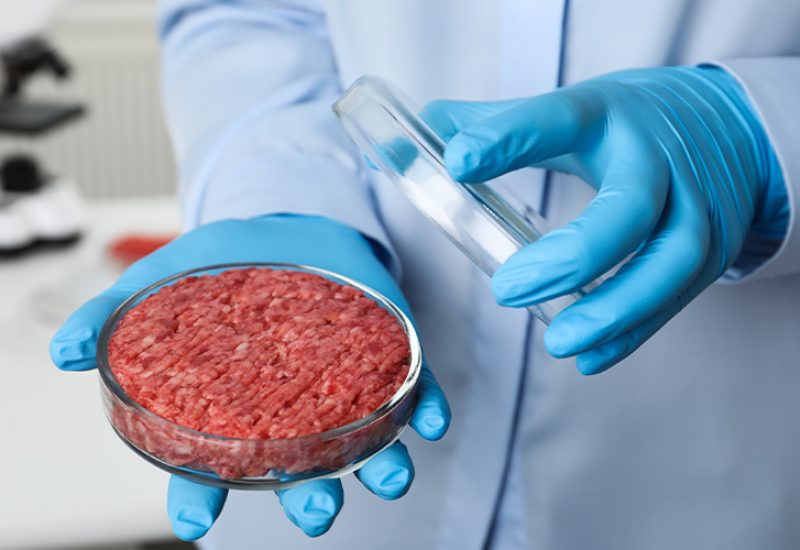We are at the forefront of advancing lab-grown meat technologies, offering a revolutionary alternative to traditional meat production. Traditional livestock farming is resource-intensive, consuming vast amounts of water, emitting significant greenhouse gases, and requiring large expanses of land, often leading to deforestation and biodiversity loss. By focusing on lab-grown meat, we aim to address these challenges through sustainable, efficient, and scalable solutions.

Our technology replicates the cellular structure of real meat, producing high-quality protein without the need for animal farming. This approach drastically reduces water consumption, as lab-grown meat requires only a fraction of the water used in traditional livestock systems. Similarly, greenhouse gas emissions are significantly lower since it eliminates methane emissions associated with livestock digestion and reduces the carbon footprint of feed production.
In addition to environmental benefits, lab-grown meat minimizes land dependency. By growing meat in controlled environments, we free up agricultural land for reforestation or sustainable crop production, contributing to ecosystem restoration and enhanced food security.
Our R&D efforts focus on refining the taste, texture, and nutritional profile of lab-grown meat to match or surpass that of conventionally produced meat. This ensures consumer acceptance while driving a shift toward a more sustainable food system.
With innovations in scalability and cost efficiency, we are committed to making lab-grown meat an accessible and viable solution for global food challenges, paving the way for a future where sustainability and food security go hand in hand.
Our impact
Environmental Impact
- Reducing Water Usage: Traditional livestock farming is one of the largest consumers of freshwater resources. Our lab-grown meat technology uses up to 90% less water, conserving this critical resource for other essential needs.
- Lowering Greenhouse Gas Emissions: Livestock farming is responsible for nearly 15% of global greenhouse gas emissions. By eliminating methane emissions from livestock digestion and reducing the energy intensity of feed production, our solutions cut emissions by up to 70% compared to conventional meat production.
- Minimizing Land Dependency: Lab-grown meat requires significantly less land, freeing up space for reforestation, biodiversity restoration, and sustainable agricultural practices. For example, we estimate that every hectare transitioned from livestock farming to lab-grown meat production prevents the destruction of critical ecosystems.
Ethical and Social Impact
- Eliminating Animal Cruelty: By producing meat without raising or slaughtering animals, we address growing ethical concerns about animal welfare, meeting the demands of conscious consumers worldwide.
- Global Food Security: Lab-grown meat provides an opportunity to produce high-quality protein in urban and resource-limited settings. This innovation enhances food accessibility, particularly in regions affected by climate change or land shortages.
Economic Impact
- Job Creation in Clean-Tech Industries: The development of lab-grown meat technologies generates new opportunities in biotech, clean energy, and sustainable agriculture sectors, fostering economic growth in cutting-edge industries.
- Reducing Costs Long-Term: As we refine production processes, lab-grown meat is expected to become more cost-effective than traditional meat, making sustainable choices accessible to a larger global population.
Driving Innovation
Our focus on advanced cellular agriculture ensures that the taste, texture, and nutritional profile of lab-grown meat meet consumer expectations. By addressing these quality benchmarks, we pave the way for widespread adoption and a meaningful shift toward a sustainable, ethical, and secure food system.
Through these impacts, we are not just reimagining the future of food; we are actively building it. Together, we can create a food industry that aligns with global sustainability goals while providing nourishing, ethical, and environmentally responsible solutions for generations to come.
we envision a world where diagnostic advancements drive healthcare innovation. By integrating cutting-edge research, precision, and sustainability, our R&D projects aim to empower healthcare providers and improve patient outcomes globally.
